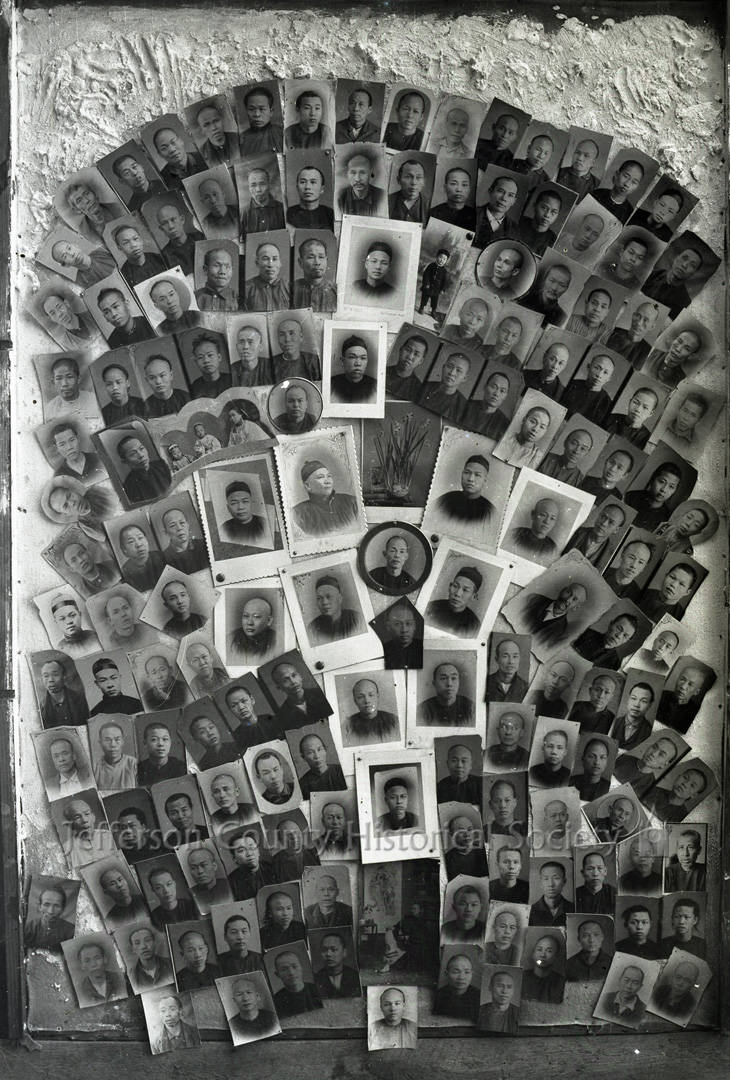Chinese Exclusion Act
The first major piece of legislation restricting immigration to America.
Like many other cultural communities in early Port Townsend, Chinese and Chinese American merchants, families, farmers, and laborers were an important part of the cultural and economic landscape of this boom town.
Top image detail and full image below: Collage of pictures of Chinese men (JCHS 2003.134.652)
“It is not known precisely when the first Chinese arrived to Port Townsend, but according to the town’s newspaper, there was a Chinese wash house in the 1860s…In the 1880s, there was an estimated 500 Chinese in Port Townsend. Gradually, as more Chinese arrived, a Chinese section emerged in lower Port Townsend near the waterfront, along Washington and Water Streets.” — Art and Doug Chin, in their book Chinese in Washington State
Like many other cultural communities in early Port Townsend, Chinese and Chinese American merchants, families, farmers, and laborers were an important part of the cultural and economic landscape of this boom town. One of many Chinese-owned businesses, the Zee Tai Company was on the books as the most prosperous business in the city in the 1890s.

The Chinese Exclusion Act of 1882 was a discriminatory federal law that prohibited the immigration of Chinese laborers, until finally being repealed by the Magnuson Act of 1943. With the exceptions of Chinese people born in the United States, as well as merchants and their families, all Chinese laborers were banned from entering the United States. People needed to carry written proof that they were in the country prior to 1882, and without this documentation, Chinese people faced mass deportation upon arrival to Port Townsend.
This was the first major piece of legislation restricting immigration to America. After the Exclusion Act, Port Townsend became a site of undocumented entry of Chinese immigrants into the United States from Canada, namely through Victoria. However, through the mid-20th Century the Chinese and Chinese American population in Port Townsend dwindled, with many families moving to surrounding areas like Seattle.
Learn More of Our History
